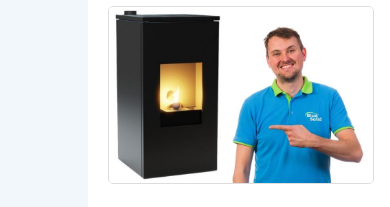
When it comes to heating your home efficiently and sustainably, pellet stoves are making waves as a trending solution. These compact, eco-friendly heating systems are designed to warm your home while reducing your carbon footprint. If you’re looking for a heating method that’s effective, cost-efficient, and better for the planet, pellet stove might just be your perfect match.
In this article, we’ll break down how pellet stoves work, why they’re considered eco-friendly, and how they’ve become a rising star in sustainable home heating.
What Are Pellet Stoves, and How Do They Work?
pellet stove (pelletkachel) are innovative heating devices that burn compressed wood pellets or biomass to produce heat. The pellets themselves are made from recycled sawdust, wood shavings, or agricultural residues, which means they repurpose waste materials that would otherwise go unused.
The system works by automatically feeding pellets into a combustion chamber, where they’re ignited to provide consistent, efficient heat. Unlike traditional wood stoves, which require constant manual feeding of logs, pellet stoves offer a more user-friendly experience with automatic settings that regulate heat output. Some modern pellet stoves also come equipped with timers and smart thermostats, further streamlining their operation.
The Eco-Friendly Edge
Lower Carbon Footprint
Pellet stoves are hailed as one of the most eco-friendly heating solutions. One major reason is their use of renewable fuel sources. By repurposing wood waste and agricultural residues, the carbon emissions of burning pellets are significantly lower than conventional fossil fuels like natural gas or heating oil.
According to the Environmental and Energy Study Institute (EESI), pellet stoves can reduce greenhouse gas emissions by 50% or more compared to coal. They are also considered carbon-neutral since trees absorb carbon dioxide during their growth, effectively offsetting the emissions produced when pellets are burned.
High Efficiency
Efficiency is another major selling point for pellet stoves. On average, they have an efficiency rating of 70-90%, meaning that nearly all the energy generated from burning pellets is used to heat your space. This is a significant improvement over traditional fireplaces, which lose much of their heat through the chimney.
Pellets are also incredibly efficient in terms of fuel density. A compact bag of pellets can last for hours, providing excellent heating power with less waste and fewer emissions.
Cleaner Burn
When compared to traditional wood-burning stoves, pellet stoves produce less particulate matter, which contributes to air pollution. Their clean combustion process adheres to strict emissions standards, making them a healthier choice for both your home and the environment.
Why Pellet Stoves Are Trending
Pellet stoves are gaining popularity as households and industries alike search for more sustainable heating options. Several key factors are driving this trend, including increasing energy costs, government incentives for renewable energy usage, and growing consumer demand for eco-conscious products.
Homeowners are also drawn to the convenience of pellet stoves. Unlike traditional wood stoves, which often require labor-intensive maintenance, pellet stoves offer automated systems that make heating your home as simple as pressing a button.
Additionally, the global push toward greener energy solutions has elevated the status of pellet stoves. Reports indicate that the global market for pellet stoves is expected to grow by 6.3% annually between 2022 and 2027, driven by heightened environmental awareness and the affordability of biomass energy.
Make the Switch to Sustainable Heating
If you’re considering upgrading your home heating system, investing in a pellet stove could be a smart move. With their high efficiency, eco-friendly operation, and growing popularity, they represent a practical solution to today’s energy and environmental challenges.
By choosing a pellet stove, you’re not only keeping your home warm but also contributing to a healthier, more sustainable planet.